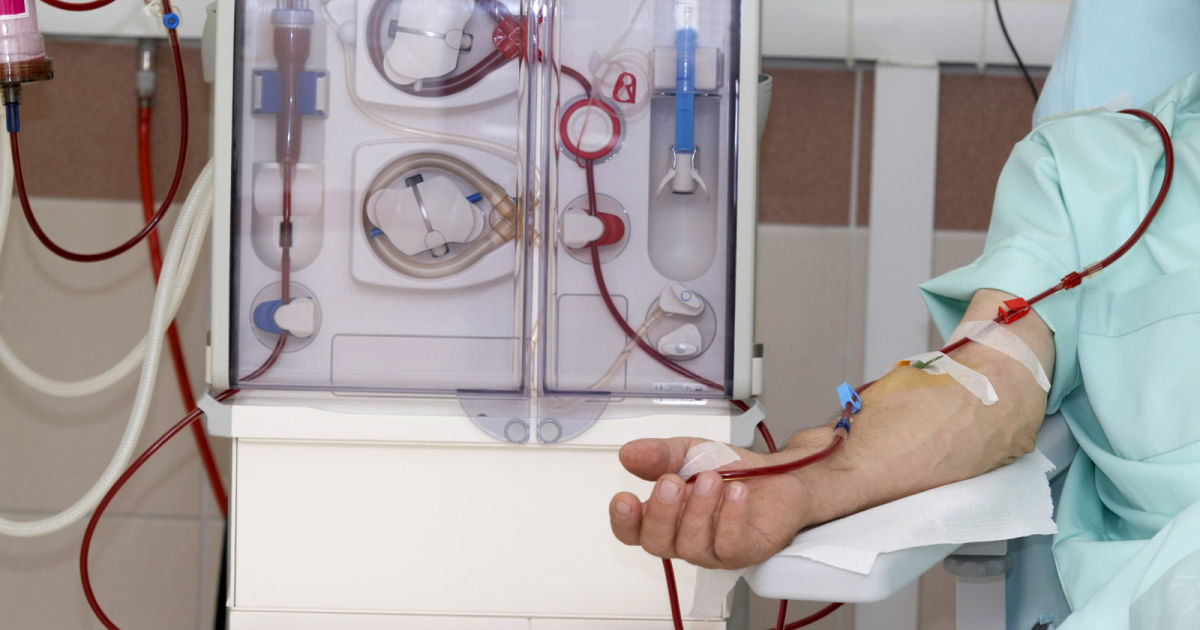Causes And Risk Factors Linked To Kidney Cancer
The kidneys are two organs that sit on both sides of the spine in the middle of the back. These organs are responsible for filtering nearly fifty gallons of blood per day to produce one to two quarts of urine consisting of extra fluid and wastes. The kidneys also mediate blood pressure, produce red blood cells, make vitamin D, and manage acidity in the body. Kidney malignancy can cause one or more of these functions to become compromised, and when malignancy begins in one of the kidneys, it is referred to as kidney cancer. Primary kidney cancer starts in one of the cells of the kidney tissues, and secondary kidney cancer occurs when malignancy metastasizes from another location in the body. Early kidney cancer symptoms include fatigue, fever, weight loss, kidney pain, and appetite loss. Advanced stages manifest with hematuria, lower extremity swelling, and a lump in the side.
Several factors can increase the risk of developing kidney cancer. Learn about them now.
Being Overweight Or Obese

Being overweight or obese can increase an individual's risk of developing cancer in their kidneys, as it can cause an individual to develop other kidney cancer risk factors including high blood pressure and diabetes. However, obesity is also proven to be an independent risk factor for kidney cancer. Obesity raises the risk of developing a type of kidney cancer called renal cell carcinoma. Obesity causes increased blood volume in comparison to an individual who is not obese. The kidneys are responsible for filtering the blood to extract waste substances and excess fluids so they can be excreted in the form of urine. The kidneys have to work harder to filter a higher than normal blood volume. Obesity also causes numerous hormonal fluctuations known to have an association with the carcinogenesis of kidney tissues. White blood cells called cytokines and steroid hormones can be released from adipose tissues in the body of an obese individual. High levels of insulin-like growth factor 1 are also common in obese individuals, compounding the effects of the aforementioned mechanisms. This combination can halt proper cell apoptosis and stimulate tumor cell growth in the kidney tissues.
Learn more about the risk factors and causes linked to kidney cancer now.
Long-Term Use Of Pain Medication

Some cases of kidney cancer in high-risk individuals are attributed to their long-term use of pain medication. The main drug class implicated in this risk increase is called nonsteroidal anti-inflammatory drugs. This class includes medications such as naproxen, acetaminophen, phenacetin, and ibuprofen. Studies have only shown a significant risk increase in kidney cancer development for individuals who take these medications for ten years or longer. While the overall risk for kidney cancer is greater in men, the increased risk associated with long term pain medication use does not favor one gender over the other. While the exact mechanism of this carcinogenesis process is not clear, it is known to be associated with the metabolites produced by the substances in these medications when they are broken down in an individual's body. Once they have built up in the body over an extended duration, these metabolites act as inducers of inflammation in the kidney tissues, which causes cellular damage and can result in the development of malignancy. Additionally, some of these metabolites are known to be carcinogens themselves independent of the inflammatory response in the body.
Reveal more risk factors and causes associated with kidney cancer now.
Hypertension

Kidney cancer is known to occur more often in individuals affected by high blood pressure (hypertension). While some kidney cancers and their treatments have been shown to induce hypertension in some cases, hypertension has also been identified to increase an individual's risk of developing kidney cancer initially. Hypertension causes the arteries responsible for transporting oxygen-rich blood throughout the body to become damaged. The damage in the artery walls is repaired by dense fibrous tissues by healing mechanisms of the individual's body. The scar tissue that replaces the original tissues and builds up over time in hypertensive individuals is unable to expand to accommodate larger volumes of blood flow with normal fluctuations like the original tissue. This process can occur in the renal arteries and those that branch from them that provide the kidney tissues with oxygenated blood. Without enough oxygenated blood reaching kidney tissues, they become hypoxic and incur cellular damage. This damage can result in cellular DNA mutations in the tissues of the kidney, which can cause the development of cancer.
Get more details on risk factors for developing kidney cancer now.
Long-Term Dialysis

Individuals being treated with long-term dialysis are more likely to develop kidney cancer than the rest of the population. Long-term dialysis is a type of treatment utilized in patients with end-stage renal disease and chronic kidney disease who are waiting for or unable to undergo a kidney transplant. The research community strongly believes the increased risk of kidney cancer in dialysis patients is attributed more to their end-stage kidney disease than it is to dialysis itself. Because the kidneys play a role in an individual's immunity, the end-stage renal disease can cause them to be immunocompromised. These immunocompromised individuals are more likely to develop cancer because their immune system is less effective at detecting and eradicating cancerous and precancerous cells in their body. On the other hand, younger patients undergoing dialysis for chronic kidney disease and end-stage renal disease have proven to have a stronger inflammatory response during the beginning of treatment due to external stimulation by the mechanism of dialysis itself. This inflammatory response causes cellular damage and can result in tumorigenesis in the kidney tissues.
Read more about risk factors for the development of kidney cancer now.
Family History And Age

An individual's family history and age can cause them to be at a greater risk of developing malignancy in one or both of their kidneys. Some genetic conditions that affect the kidney structure and function such as von Hippel-Lindau syndrome, Birt-hogg-Dube syndrome, hereditary leiomyoma, and hereditary renal oncocytoma can cause a correlation in the development of kidney cancer in individuals immediately related to each other. Several other genetic variants that impact the kidneys in certain genes can be inherited from an affected individual's parents, including those on the GSTM1, GSTP1, GSTT1, NAT2, VDR, APO/C1, and AGT genes. These genetic variants may increase an individual's risk of developing kidney cancer. An individual's age can put them at an increased risk of developing kidney cancer independent of other kidney cancer risk factors. It is rare for individuals under forty-five years old to develop malignancy in their kidney. The age at diagnosis of kidney cancer averages out at sixty-four years old. Therefore, an individual's risk of developing kidney cancer increases proportionally with their age.
